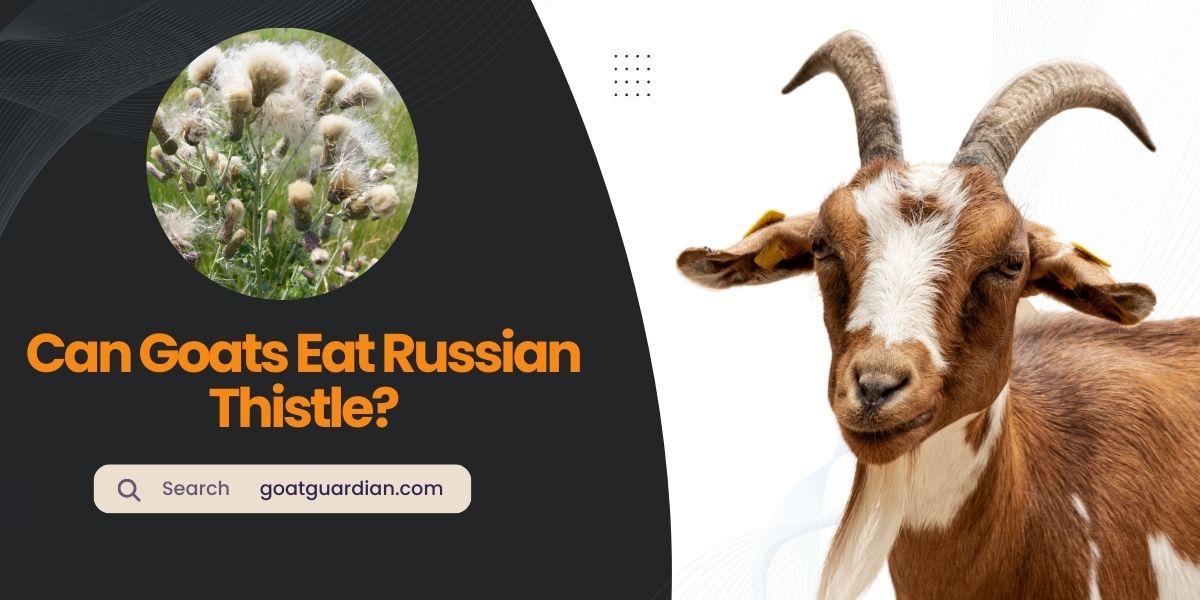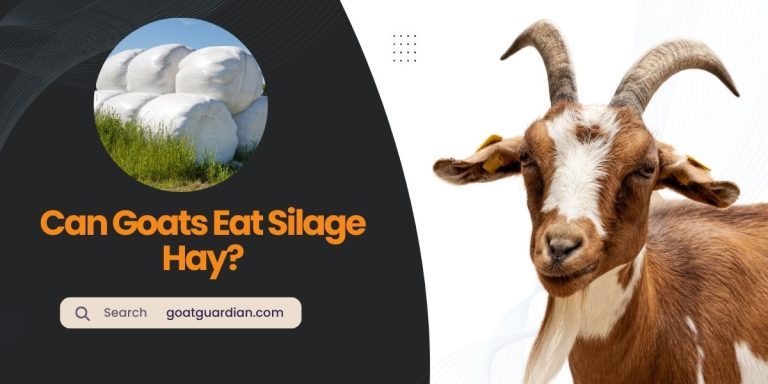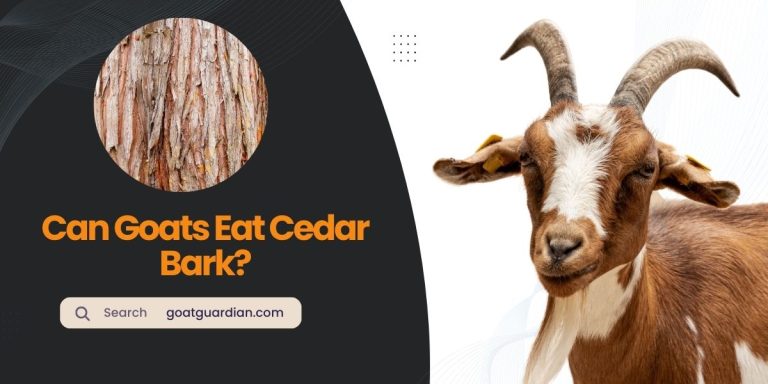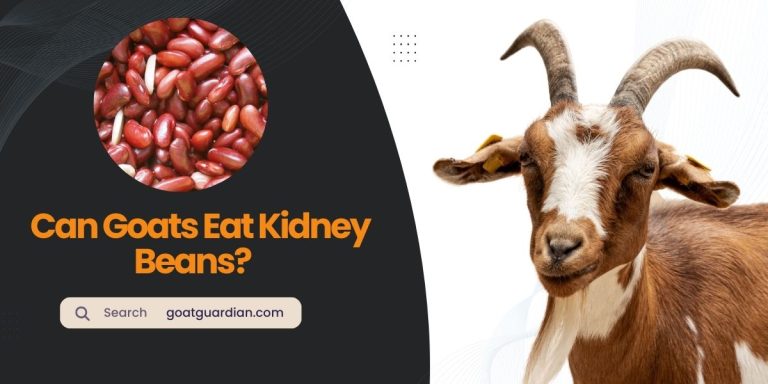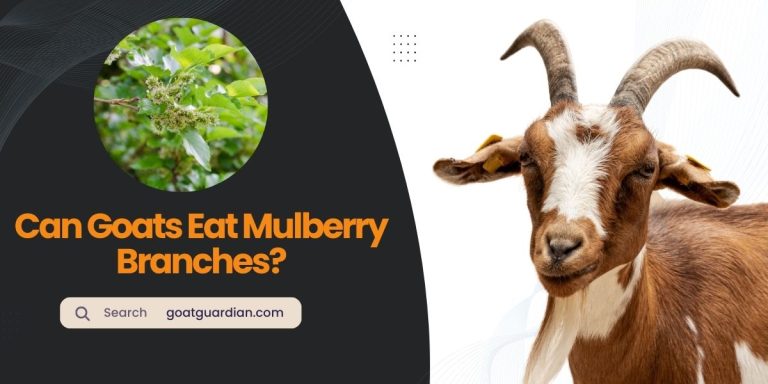Do Goats Eat Russian Thistle? (with FAQs)
Yes, goats do eat Russian thistle.
The Preferences Of Goats
Older male goats and baby goats have different preferences when it comes to food. Older males prefer Russian thistle, Russian olive, and elm trees as their first choices. On the other hand, baby goats, known as nannies and yearlings, prefer field vine weeds as their top choice.
Goats are well-known for eating various vegetation, including noxious and poisonous plants. They can safely consume plants like knapweeds and yellow star thistle, which are harmful to other livestock. However, they tend to avoid Russian knapweed unless they are undernourished.
Ranchers have found success using herds of goats or sheep to clear fields of unwanted plants such as whitetop and knapweed. Goats are easy to train and are suitable for urban settings due to their quiet nature and dry, non-smelly droppings.
While goats have a wide range of plants they can consume, there are some poisonous plants they should avoid, such as azaleas, China berries, and nightshade.
However, they have a preference for certain weeds, including musk thistle, Canadian thistles, multiflora rose, and stinging nettles, which can even enhance milk production in does.
Overall, goats are effective at clearing trees, brush, weeds, and other unwanted plants, making them a valuable resource for natural weed control.
Controlling Noxious Weeds
| Goats have been found to be a successful alternative to pesticides in controlling noxious weeds. They can have a positive impact on the environment while performing this vital task. While goats may have different preferences when it comes to their diet, they have been observed to eat Russian thistle, among other weeds. Goats are known to be remarkably efficient in consuming a wide range of plant species, including poisonous plants, without experiencing adverse effects. Some plants that are typically avoided by goats include Russian knapweed, unless they are undernourished.Ranchers have started utilizing herds of goats to clear fields of unwanted plants like whitetop and knapweed, which can also be a sustainable method of weed control. |
Goats And Poisonous Plants
Goats have a remarkable ability to eat a wide range of plants, including some that are considered poisonous to other animals. They have a great diet specificity and can avoid harmful plants.
However, there are exceptions to this rule. When it comes to Russian thistle, goats have been observed to consume it without any negative effects. In fact, older males have been found to prefer Russian thistle along with other plants like Russian olive and elm trees.
On the other hand, baby goats tend to choose field vine weeds as their first choice. It is interesting to note that goats can save thistle for last, which might be unfortunate for those who rely on thistle for honey production.
In general, goats are valuable in controlling noxious weeds, but it is important to be cautious with certain plants like Russian knapweed. Furthermore, undernourished goats may be more likely to eat harmful plants.
Overall, goats play an important role in combating invasive species and clearing fields of unwanted plants.
Goats As Weed Fighters
Goats are known for their ability to eat a wide variety of plants, including weeds. They can be particularly effective in controlling noxious weeds such as Russian thistle, halogeton, and other annual weeds.
While the preference for what goats eat first may differ between older males and younger goats, goats have been shown to successfully consume Russian thistle.
Using commercial goat herds can be a valuable strategy for combating noxious weeds, even in urban settings. Goats are easy to train and their droppings are dry and not smelly, making them ideal for use in urban areas.
They can help clear fields of unwanted plants and can even be used to clean up trees, brush, and other unwanted vegetation.
It’s important to note that while goats can eat a wide range of plants, there are certain plants that are poisonous to them. Examples include azaleas, China berries, sumac, and nightshade. It’s crucial to ensure that goats are not exposed to these poisonous plants.
Goats And Harmful Plants
| Goats have a selective diet and avoid certain plants that may pose health risks to them. Two examples of plants that goats tend to avoid are Oleanders and Russian knapweed. While older male goats prefer Russian thistle, Russian olive, and elm trees, baby goats, nannies, and yearlings tend to choose field vine weeds as their first choice. Goats are known to be able to eat all kinds of plants, including poisonous ones, without it affecting their health. Some common poisonous plants that goats tend to avoid include azaleas, China berries, sumac, and nightshade. However, it is important to note that goats’ preference for certain plants may vary depending on their nutritional needs and the stage of growth of the plants. Using goats to combat noxious weeds has been proven successful, as they can help control the spread of plants like Russian thistle, halogeton, and other annual weeds. Additionally, goats are easy to train and can be suitable for clearing unwanted plants in urban settings due to their quiet nature and odorless droppings. |
Utilizing Goats To Manage Invasive Species
The older males preference for what they eat first differs from the baby goats, the nannies, and yearlings. If available, the older males prefer Russian thistle and Russian olive and elm trees, while the babies’ first choice is field vine weeds.
Mine eat up the thistle and yes, they do save it for last. Bummer for us as thistle makes wonderful honey and there isn’t anymore for our bees.
Weeds, like the knapweeds and yellow star thistle. Goats eat all poisonous plants, which does not seem to bother them. They also have great diet specificity.
Russian thistle, halogeton, all of those annual weeds, that…
We all know that goats don’t eat just anything. However, there are several plants that do pose health risks to goats.
“They’re very easy to train. They’re quiet and their droppings are dry and not smelly, which makes them ideal for urban settings,” said Hall.
Essentially, ranchers use herds of goats or sheep to clear fields of unwanted plants like whitetop and knapweed. The practice can also clear…
Madsen says “there are some plants that are poisonous to other livestock, and not to goats, such as yellowstar thistle. Other plants such as…
“They love musk thistle at the right stage, and Canadian thistles at the bloom stage. They also really like multiflora rose, horseweeds, lambs-quarter, ragweed, and burdock.” Goats do very well on weeds, too. Smith says milk production takes a jump when a doe gets to feast on stinging nettles.
What weeds will goats not eat? Some examples of poisonous plants include azaleas, China berries, sumac, dog fennel, bracken fern, curly dock, eastern baccharis, honeysuckle, nightshade, pokeweed, red root pigweed, black cherry, Virginia creeper, and crotalaria.
Turning Weeds Into Food
The older males’ preference for what they eat first differs from the baby goats, the nannies, and yearlings. If available, the older males prefer Russian thistle and Russian olive and elm trees, while the babies’ first choice is field vine weeds. Goats eat all poisonous plants, which does not seem to bother them. They also have great diet specificity.
Goats don’t eat just anything. However, there are several plants that do pose health risks to goats. Examples of poisonous plants include azaleas, China berries, sumac, dog fennel, bracken fern, curly dock, eastern baccharis, honeysuckle, nightshade, pokeweed, red root pigweed, black cherry, Virginia creeper, and crotalaria.
So, while goats love feasting on weeds, there are certain plants they tend to avoid.
Using a herd of trained goats or sheep can be an effective solution to clearing fields of unwanted plants like whitetop and knapweed. This practice can improve grazing land and help combat invasive species, providing a natural and eco-friendly solution.
Frequently Asked Questions Of Do Goats Eat Russian Thistle
Are Thistles Poisonous To Goats?
Thistles are not poisonous to goats. In fact, goats are known to eat a wide range of weeds, including thistles, without any adverse effects. They have a preference for certain plants, but they can safely consume thistles as part of their diet.
What Weeds Will Goats Not Eat?
Goats avoid eating Russian thistle and some other plants like azaleas, sumac, and black cherry, which are poisonous to them. Goats can eat a variety of weeds, but their preferences vary between older males and younger goats.
What Goats Eat Weeds Best?
Specialist meat-producing goats like Boer goats, rangeland goats, and their crosses are best for eating weeds. Cashmere and Angora goats are also suitable for weed control but should be cautious of fiber entanglement.
Do Goats Eat Russian Thistle?
Yes, goats do eat Russian thistle. Older male goats may prefer Russian thistle along with Russian olive and elm trees, while baby goats tend to choose field vine weeds as their first choice.
Conclusion
From the research conducted, it is evident that goats do indeed eat Russian thistle, although there may be some variations in preference depending on the age and gender of the goats. Older males tend to prefer Russian thistle, while baby goats prefer field vine weeds.
Goats have the ability to consume various types of weeds, including those considered poisonous to other livestock. They are even used in some cases for weed control, proving to be effective in clearing unwanted plants. Despite their ability to eat a wide range of weeds, there are certain plants that goats should avoid, as they can be poisonous to them.
Overall, goats have shown to be an efficient and eco-friendly option for managing weeds and maintaining a healthy environment.
